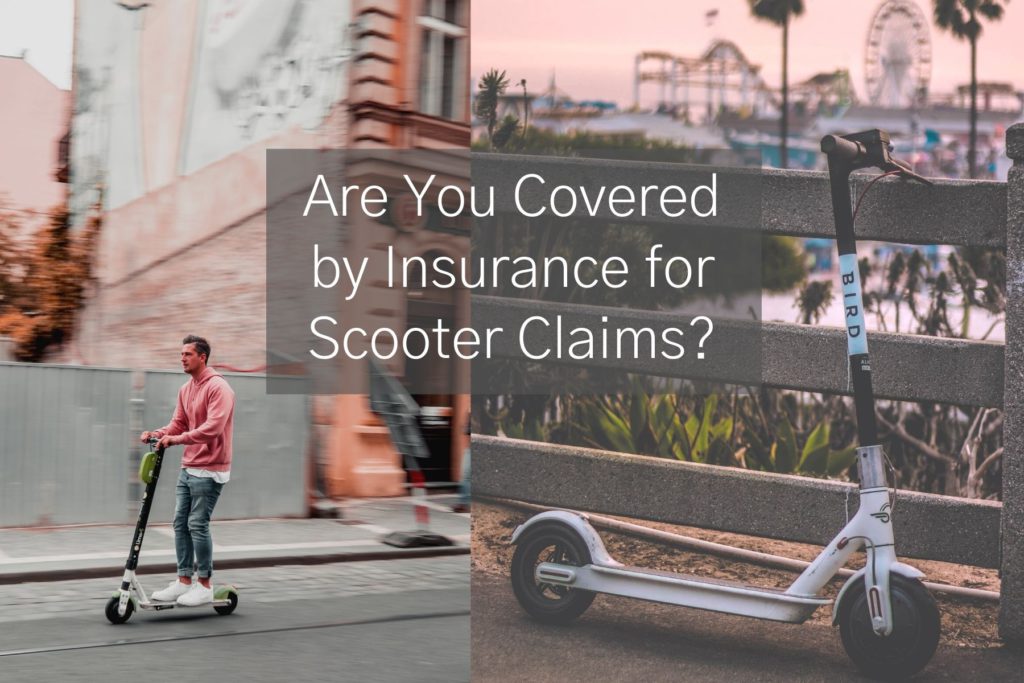Dockless electric scooters (e-scooters) have descended upon many major cities across Canada and the US, with Lime and Bird being the two largest companies operating the transportation devices. In Calgary, Alberta, these e-scooters reach speeds up to 20km/h, which have the potential to cause a significant amount of damage. Injuries, road traffic accidents, and even deaths have occurred since e-scooters have popped up in more than 100 cities worldwide. This begs the question, if you are involved in an e-scooter accident, are you covered by insurance?
Bird’s User Agreement states that “by choosing to ride a [scooter], the Rider assumes all responsibilities and risks for any injuries or medical conditions.” When a user taps “I agree” on their app, they understand that the activity they are engaging in carries potential dangers which they are assuming the responsibility for. Similarly, under Lime’s user agreement you will find that they “reserve the right to hold you fully responsible for all damage, losses, claims and liability arising from your use of any vehicle”.
Beyond the user’s ability to safely operate the e-scooter, there are other safety concerns such as the scooter’s potential to have defects in design, manufacturing, or maintenance. The last thing you would want is to unlock an e-scooter to find out that it has a sticky accelerator or brakes that fail to work properly.
Before you take your next ride on an e-scooter, consider if you are covered for claims under your insurance policy:
In Alberta, auto third party liability insurance for non-owned automobiles only applies to vehicles of the Private Passenger or Station Wagon type. Since e-scooters do not fit into the definitions of these categories, they are excluded from automobile insurance policies.
However, the standard liability wording in homeowner’s, condo unit owner’s and tenant’s insurance policy forms, under the “Watercraft and Motorized Vehicles You Do Not Own” section, can provide coverage. The standard wording used by most Canadian insurers states that you are insured against claims arising out of your use or operation of any self-propelled land vehicle, provided that the vehicle is not subject to motor vehicle registration requirements and is designed primarily for use off public roads. So long as the user does not own the e-scooter they are using, a homeowner’s or renter’s policy should provide liability coverage for the use of dockless e-scooters. The amount of coverage would be equal to the limit for liability insurance under the policy.
Coverage can vary depending on the area you live in and on the specific language within your insurance policy, so it is best to check with your insurance provider for formal confirmation.
Other ways to protect yourself while operating an e-scooter:
- Wear a helmet. Bird offers a free helmet to all active users which can be ordered through their app, although the user is required to pay for associated shipping costs.
- Refrain from riding while holding any unsecured bags including a briefcase or shopping bags.
- Do not use your phone or portable music device while riding.
- Use bike lanes when they are available.
- Ensure that the e-scooter is only operated with one person over the age of 18 on it (in compliance with the user agreements of the scooter service providers).
- Do not use e-scooters after consuming alcohol, cannabis or other intoxicants.
